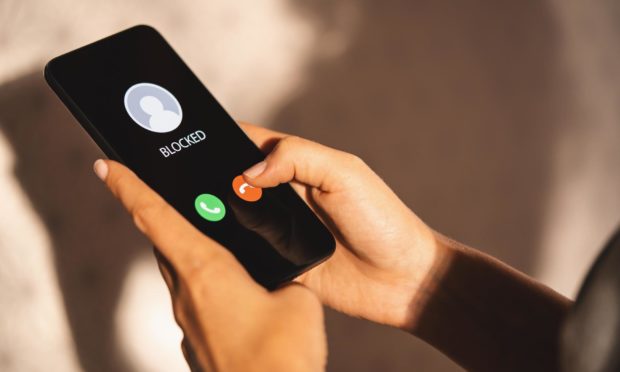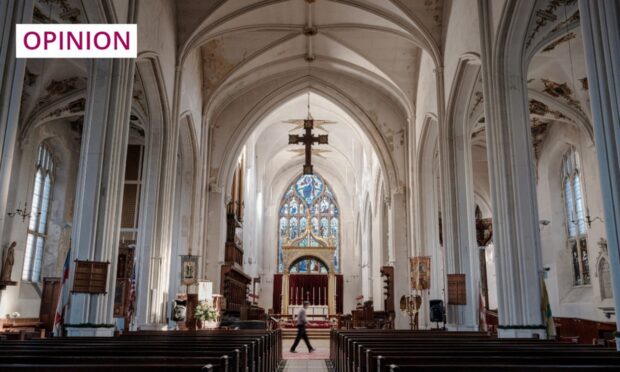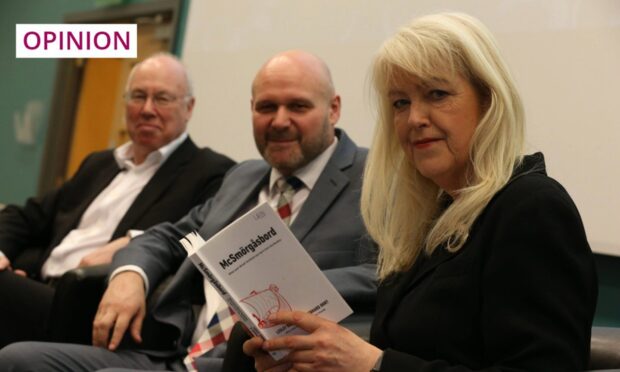A recent survey found that almost 12% of people in Scotland had experienced at least one form of stalking and harassment in the previous 12 months.
As we mark National Stalking Awareness Week, I want to reaffirm the commitment of Scotland’s prosecutors in tackling stalking and protecting victims.
Stalking takes many forms and can involve spying on a victim and monitoring their activities – often through their mobile phone or social media and online accounts – along with a host of other intimidating and intrusive behaviour, such as being sent unwanted messages, phone calls, cards and gifts, being followed or having someone loitering outside their home or work.
In isolation, many incidents of stalking might appear innocuous – receiving an unexpected gift could be viewed as a nice surprise
Many victims of stalking know their stalker in some way, often as their partner or ex-partner, but many others do not. The offence does not only occur in intimate relationships; it can be work related, prompted by an ongoing dispute or as a result of a person’s public profile.
For any victim, the experience of being stalked can be frightening and distressing and can have a huge emotional impact.
What counts as ‘stalking’?
Stalking is a criminal offence. For a person to be prosecuted for stalking, they must have engaged in a course of conduct on at least two occasions which caused the victim to suffer fear and alarm, where the accused intended or ought to have known that their actions would do so.
In isolation, many incidents of stalking might appear innocuous – receiving an unexpected gift could be viewed as a nice surprise. But it is the repeated and unwanted pattern of behaviour which makes it criminal. It is always important to look at the whole picture and the impact on the victim. Regardless of what prompted the behaviour, it can leave victims feeling fearful, powerless and isolated.
Don’t wait to get help
While, by definition, stalking occurs over a period of time, victims do not have to wait years or even months to seek help and support.
Scotland’s prosecutors understand the impact of stalking and will always consider the safety of victims when prosecuting stalking offences.
In 2019-20, the Crown Office and Procurator Fiscal Service (COPFS) received more than 1,100 reports of stalking offences from the police. We take every case seriously and are always mindful of the risk of the behaviour escalating. We know the fixation of a person engaging in stalking is unlikely to end on arrest and so we take steps to address this.
Today marks the start of NSAW 2021. Stalkers leave victims feeling fearful, threatened, powerless & isolated. It’s important that victims know that there are specialist support services that will listen, support, and empower them to take back control #StalkersAndVictims #NSAW2021 pic.twitter.com/lkk5quzNFZ
— Action Against Stalking (@ActionStalking) April 19, 2021
Stalking has been a specific offence in Scotland since 2010, and every COPFS staff member received training following its introduction.
We have come a long way since then. Every victim in a stalking case is now referred to COPFS’s Victim Information and Advice Service (VIA) where specialist staff provide updates and support to victims to help them navigate the prosecution process, and we work closely with police and third sector organisations.
I would urge anyone who has been the victim of this type of offending to report it to the police and seek support.
Moira Price is the National Procurator Fiscal for Domestic Abuse who leads on victims and witnesses policy issues for COPFS, Scotland’s independent prosecution service










